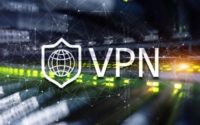How to Get a VPN

There are many myths surrounding Virtual Private Networks. Learn how to pick the right VPN service, set it up on mobile devices, and use a VPN to get around regional geoblocks. Regardless of your reason for needing to protect your privacy on the internet, you’ll want to get a VPN service.
Common myths about Virtual Private Networks
A VPN (Virtual Private Network) is a tool used to protect one’s identity online. The technology works by changing one’s IP address so that an internet user is completely invisible to others. This can help the user access blocked websites, travel anonymously, and buy cheaper plane tickets. However, there are many myths about VPNs, which can hinder their effectiveness.
Firstly, it’s important to know that VPNs offer advanced data encryption. They use 256-bit encryption, which is very difficult to decode. Although this level of encryption makes it harder for hackers to track user activity, a VPN provider may keep logs of activity. These logs will usually be subject to terms and conditions.
Second, VPNs do not offer end-to-end anonymity. Many people think that these services obfuscate user information and provide end-to-end anonymity, but this is not true. VPNs are similar to a lane on a highway that is reserved for private traffic.
Virtual Private Networks (VPNs) aren’t just for criminals, but they’re also used by millions of people for a variety of reasons. They protect your privacy and help you get around local regulations. However, there are myths about VPNs that are dangerous for ordinary users.
The truth is that VPNs aren’t hard to set up without the help of an IT expert. In fact, even a complete novice can install a VPN by themselves. Some people assume that they’ll need to know advanced technology to use a VPN, but this is simply not true. VPNs have improved to the point where they can be set up with a few minutes of work.
Choosing a VPN service
Choosing a VPN service that meets your needs is an important step in maintaining your privacy and security. Make sure the VPN you choose supports your privacy goals and has a clear privacy policy and terms of service. If you plan to use BitTorrent, stay away from providers that discourage BitTorrent use. Also, look for a provider that offers many exit IP addresses for increased security.
There are many different types of VPN services on the market. Choosing a good one will provide you with the security and peace of mind you need. Ensure that the VPN you choose is easy to use and has a user-friendly interface. Many VPN services will configure the VPN for you, which can make things even easier for you. Moreover, look for a VPN service that has a trial period. A trial period will allow you to test the service without paying a dime.
You should also check for speed and encryption levels. Different VPNs offer different speeds, depending on their location. European, North American, and Asian regions generally offer high speeds. Depending on your needs, choose a VPN that has multiple servers and one that is close to the location you need to be in. Lastly, choose a VPN service that is reliable, has no log policies, and is fast.
You should also look for customer support. Some VPN services offer phone support and live chat. These options are important for people who are worried about privacy. However, if you don’t want to deal with live people, look for a VPN that offers email support.
Setting up a VPN on a mobile device
Setting up a VPN on your mobile device is fairly easy, as long as you know the right steps. The first step is to go into the network settings on your device. This may be found under the Network & Internet option in your device’s settings, but it may also be in the “Advanced Options” menu. Once you’ve located this option, you can enter your server address and username and then hit the “save” button to proceed with the VPN setup.
If you’re using a Blackberry or a Windows mobile device, you can use the native VPN client software from your operating system. If you’re using an Android device, you’ll need to download a third-party VPN client from the Google Play Store. After installing the VPN client software, you should make sure that you have the server list of the VPN provider. Some VPN services will also provide a connection certificate file.
Using a mobile VPN is an excellent way to protect yourself from snoopers. Whether you’re travelling to a new country or just a friend’s place, a VPN can keep your online activity anonymous. You can even use a VPN to bypass location blocks on social media sites. You can also browse websites and watch videos without worrying about someone listening in on your conversations.
Setting up a VPN on your mobile device is easy to do if you know how to use it. Most mobile VPN apps come with a VPN app that helps you manage the connection. Once you’ve downloaded the app, you need to choose a country you’d like to connect to. Generally, the closer your VPN is to your current location, the better its performance.
Using a VPN to bypass regional geoblocks
A VPN is an easy way to bypass regional geoblocks, which are restrictions placed on some websites and streaming services. These restrictions are designed to prevent users from viewing content based on their location. Using a VPN can help you bypass geoblocks by hiding your IP address and replacing it with one from the region you prefer. The advantage of using a VPN for streaming content is that you can watch TV shows and movies in HD quality no matter where you are in the world.
The main reason behind geoblocking is copyright or licensing. If you visit a website or streaming service in a different country, you’ll be prevented from watching content based on its licensing requirements. If you try to watch something on Netflix or Amazon Prime in a region that it blocks, you’ll be shown a geoblock message. If the content is not available, you’ll see an error message indicating that there is no such title.
Using a VPN to bypass regional geo-blocks is fast and convenient, and you can use it on your phone, laptop, or computer. A VPN allows you to connect to servers located in different countries at once. A VPN also lets you change your IP address easily and securely, so you don’t need to worry about your connection speed.
Although VPNs can help you to bypass regional geoblocks, some governments don’t like the idea of their citizens using them. If you’re accessing the Swedish Netflix catalog in the U.S., you would not be arrested for doing so. If you were using a VPN to access the New York Times in China, you wouldn’t be blocked. In addition to that, the use of a VPN also helps you maintain your privacy online.
Streaming content securely with a VPN
Streaming content securely with a VPN is a great way to access geo-restricted content and protect your privacy from ISPs and hackers. Using a VPN can also increase your connection speed and protect you from restrictions placed on content by your ISP. VPN services come with different features and can be used with any type of device connected to the internet. A good VPN service will provide you with several encryption protocols and keep your information safe.
Choose a VPN that works with streaming services and servers in your location. ExpressVPN offers fast speeds, works with most popular streaming services, and keeps no logs. Another great VPN option is CyberGhost, which has recently increased its efforts to make their servers compatible with more streaming services. It also has preconfigured security tools and a 24/7 live support team.
VPNs are not perfect, however. Some streaming services, including Netflix and Amazon Prime Video, block VPN users on their servers. This is because they may use network monitoring tools to identify VPN providers. VPN services that work with Netflix and Amazon Prime Video are a great option for unblocking these services.
Another great feature of a VPN is the ability to hide your IP address. This prevents third parties from identifying you and tracking your activities. If you are concerned about privacy, consider a VPN that includes a kill switch. Kill switch protection is a great tool for users that use public Wi-Fi. Another great feature of a VPN is that it allows you to enjoy your media streaming services faster. Sometimes, ISPs will throttle your connection speed while streaming content, making it more difficult for you to watch high-definition content. But with a VPN, ISPs won’t know any difference between your streaming media and your web browsing.


